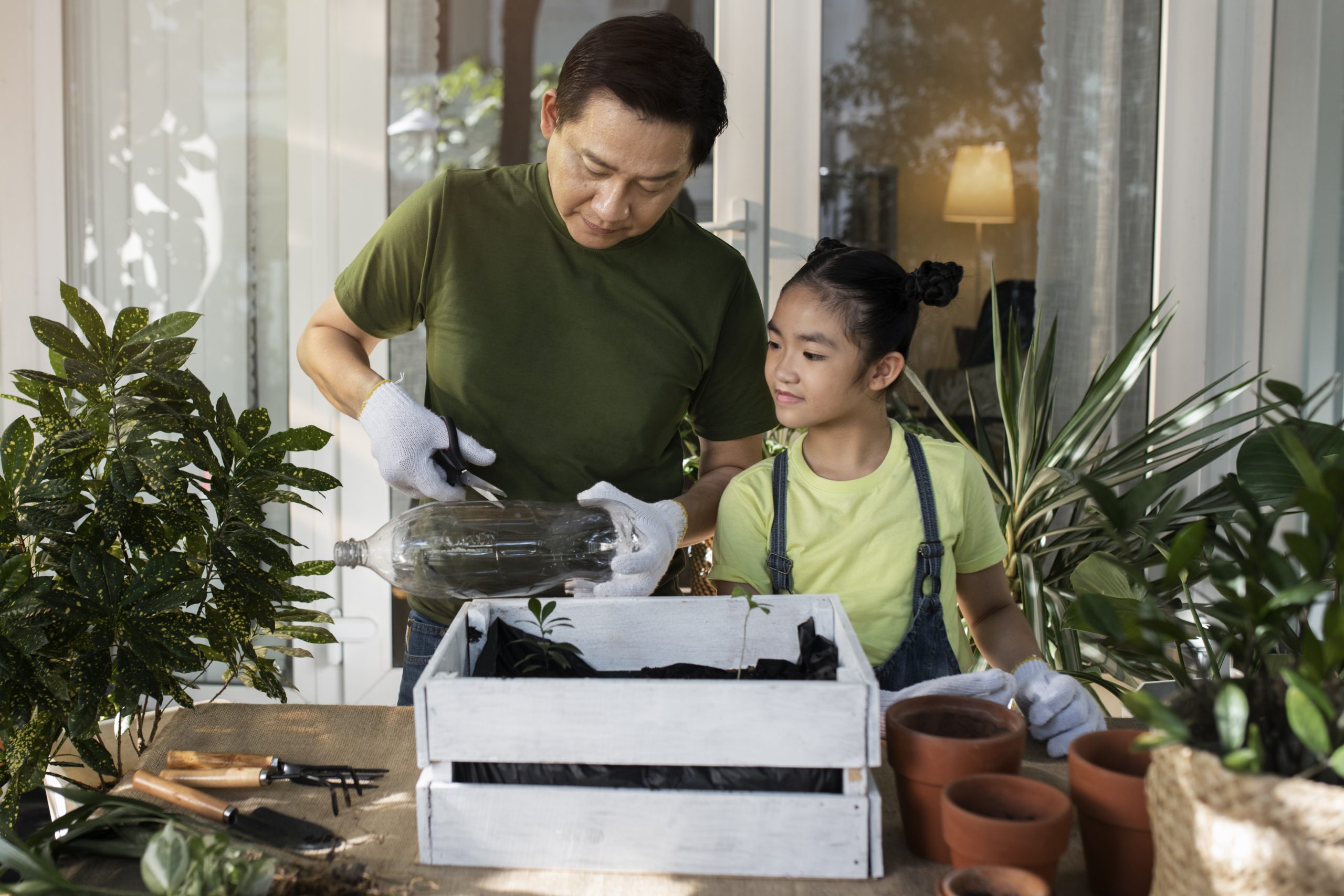Table of Contents

Sustainable living is a lifestyle aimed at minimizing negative impacts on the environment while ensuring a balance between human needs and the Earth’s ecosystem. Implementing sustainable living practices in schools is an integral part of environmental education and collective efforts to preserve the environment. So, how can students practice sustainable living at school?
Ways to Implement Sustainable Living for Students
Implementing sustainable living for students involves several steps to increase awareness and positive actions towards the environment. Through education on sustainable living, students can become positive change agents supporting sustainability. They can integrate sustainable living into their daily routines. Here are some ways to implement sustainable living for students:
- Environmental Education and Awareness
Provide students with in-depth education on environmental issues and the importance of sustainable living through school programs, workshops, or extracurricular activities focused on sustainability. Integrate sustainable living and environmental topics into the curriculum to continuously provide information and understanding about sustainability.
- Resource Conservation Practices
Encourage students to adopt resource-saving habits, such as turning off lights when not in use, using recycled paper, and limiting water use.
- Recycling Programs
Schools can initiate recycling programs, teaching students to sort waste, recycle certain materials, and reduce waste.
- Tree Planting and Nature Conservation
Involve students in tree planting activities or maintaining the school garden to increase their awareness and care for the natural environment.
- Promotion of Eco-Friendly Transportation
Encourage students to use public transportation, bicycles, or walk to school to reduce greenhouse gas emissions from personal vehicles.
- Sustainable Extracurricular Activities
Organize extracurricular activities related to sustainable living, such as environmental study groups or innovative projects that support sustainability.
Examples of Sustainable Living Practices at School
Here are some examples of how students can apply sustainable living practices at school:
- Recycling Programs
Implement recycling programs that involve students and staff in sorting and recycling waste. For instance, separate bins for paper, plastic, and metal waste can help reduce the amount of waste ending up in landfills.
- Sustainable Cafeteria
Adopt a sustainable cafeteria model by reducing single-use packaging, using eco-friendly containers, and providing food options sourced from local and sustainable providers.
- Planting and School Gardens
Engage students in planting activities, maintaining the school garden, and incorporating sustainability concepts into school agriculture curriculum.
- Energy Conservation Programs
Apply energy-saving policies by encouraging students to turn off lights and electronic devices when not in use.
- Environmental Education Integration
Integrate environmental education into the curriculum, including lessons on the importance of sustainability and environmental responsibility.
- Environmental Clubs or Projects
Form environmental clubs or projects at school to involve students in sustainability activities and environmental improvement projects.
- Eco-Friendly Transportation
Promote the use of eco-friendly transportation methods among students and staff, such as biking, walking, or using public transport.
- Efficient Water Management
Adopt efficient water management practices, including fixing leaks, using water-saving technologies, and educating about water conservation.
- Waste Reduction Programs
Implement waste reduction programs to minimize the use of single-use items, reduce waste, and support recycling initiatives.
- Community Sustainability Participation
Collaborate with local environmental communities to engage in activities such as cleaning the surrounding area or participating in local environmental events.
By implementing these examples, schools can become platforms for fostering and reinforcing environmental awareness and encouraging sustainable behavior among students and staff.
Author : Umi Zuhriyah










